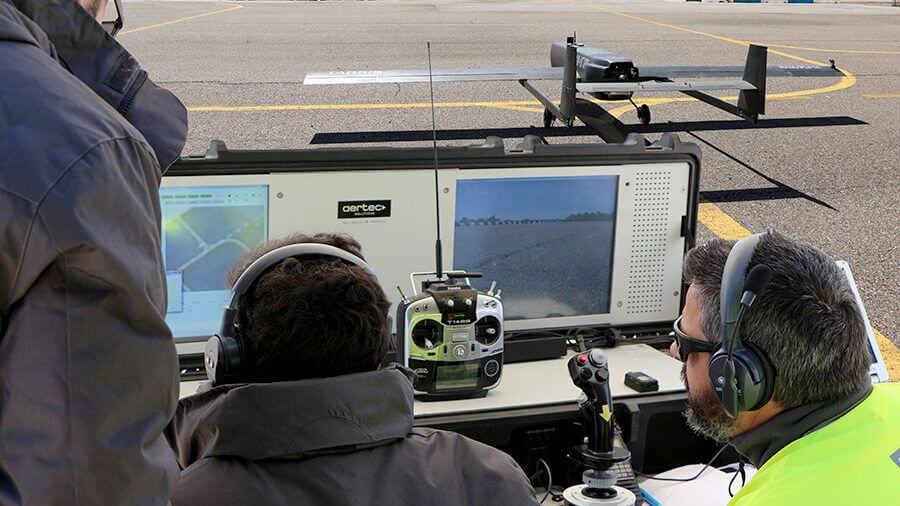In this last operational evaluation campaign for the Army carried out by the TARSIS 75 fixed-wing aerial platform, the 75 km of distance were exceeded and more than 14,000 feet in difficult terrain
The RPAS TARSIS 75 of the AERTEC company, an international technology company specialized in aeronautics and defense, has successfully completed the last operational evaluation within the framework of the Rapaz Program, promoted by the General Directorate of Armament and Materials (DGAM) of the Ministry of Defense. During this flight campaign for the Army, the reach and height capabilities of this fixed-wing platform made entirely of carbon fiber have been certified, exceeding 75 km. away and more than 14,000 feet high in complicated terrain. The TARSIS 75 had already exceeded these distances in Spain at the INTA Arenosillo facilities, although the capacities are 150 km.
These tests, carried out at the Conde de Gazola Army Base in the province of León, have also served to verify the modifications of the aircraft and the ground control station, at the request of the DGAM and the Army and Ground Armies. Air, and the benefits of TARSIS 75 as a fire support system, with target identification and shot correction.
The Spanish Ministry of Defense launched the Rapaz Project in 2016 with the aim of evaluating proposals for Remotely Piloted Air Systems (RPAS) of less than 150 kg for future acquisitions by the Armed Forces. The AERTEC Solutions RPAS TARSIS 75 has since successfully completed 4 campaigns within the framework of this program, demonstrating the high technological performance of this light tactical RPAS intended for observation and surveillance applications.
Also within the framework of the Rapaz Program, TARSIS 75 has shown its capabilities for the Air Force as a possible teaching aircraft for the School of Unmanned Air Systems at the Matacán air base (Salamanca), together with the functionalities of the RPAS simulator of AERTEC Solutions.
TARSIS 75 is a class I RPAS system with high operational performance, specifically designed and built to offer two very important variables: a high load integration capacity (more than 12 kg) and a long flight time (up to 12 hours). With these capabilities, the system has extensive configuration flexibility, being able to adapt to the vast majority of operating environments, including highly complex ones.











